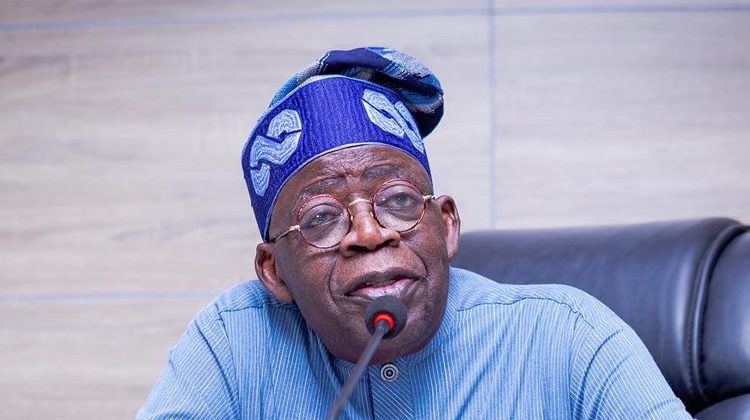
Tinubu made the pledge when he launched the Electronic Civil Registration and Vital Statistics System alongside the National Geospatial Data Repository and the National Coordination Committee on CRVS.
This was as he remained silent on the new dates for the exercise, which has suffered multiple postponements during the previous administration.
The PUNCH reports that the Federal Government has been brandishing an estimated figure for the past 17 years, as the last census, conducted in 2006, gave a population figure of 140 million.
Although the result was disputed in some quarters, the country was due for another headcount in 2016 which failed to materialise.
The immediate-past administration of former President Muhammadu Buhari planned to conduct another in 2022, which was later shifted to 2023 and ultimately postponed indefinitely in May, a few days before he handed over to Tinubu.
Buhari said he would allow the Tinubu administration to announce new dates for the headcount.
But with about six months in office, the President is yet to announce a new date.
Rather, he pledged his administration’s support for the next exercise, asserting its importance in crucial aspects of national planning.
“The population remains the greatest asset of the nation in her development process.
“Collecting accurate and reliable information on the size, distribution, composition and characteristics of the population is an essential governance activity which is consistent with our Renewed Hope Agenda.
“The commission will therefore be supported in the conduct of next census,” Tinubu affirmed.
He encouraged government Ministries, Departments and Agencies to cooperate more in providing adequate data needed for planning and appealed to development partners for their support.
According to the President, conducting the census would give Nigeria a 100 per cent shot at achieving the Sustainable Development Goals pertaining to real-time identity management and population data. I.e., Goal 16.9.2 on “legal identity for all, including birth registration”.
President Tinubu noted, “We are open for all possible partnerships that will upgrade the character of nig.
“The current drive to reposition this vital registration system will provide 100 per cent attainment of our year 2030 SDG target with respect to real-time identity management and population data.
“The commission has made substantial progress in its quest to deliver the first digital Population and Housing Census. It is my hope that the result of the census will provide the nation with much needed data for development planning and enthronement of good governance.”
Therefore, he called on the National Population Commission to “deploy the cutting edge technology in the geospatial data that has been collected through the Enumeration Area Demarcation in implementing the eCRVS.”
He then presented a real-time generated birth certificate to an infant and inaugurated the National Coordinating Committee on the CRVS under the chairmanship of the NPC Chief, Dr Nasir Kwarra.
Speaking earlier, the Minister of Health and Coordinating Minister for Social Welfare, Prof. Ali Pate, said the CRVSC complements the administrative records that the FG currently holds and will provide the basis for effective planning of programmes, interventions and harness Nigeria’s demographic potentials.
“When we hear of maternal mortality rates under-five mortality rates or with zero-dose children and the health of our people in terms of statistics. Yes, those are statistics we should care about and use to plan. But behind those numbers are real people who suffer.
“This system that we’re putting in place would help us track that. But beyond that, we in the Ministry of Health and Social Welfare, Mr. President, have already committed to making maternal deaths in particular reportable.
“The 80,000 women who die from maternal causes should not be forgotten and this system will help make that more visible as part of our efforts to improve as we move forward,” Pate explained.
In his remarks, the Chairman of the National Population Commission, Kwarra, said Wednesday’s launch, realised through the collaboration of the NPC, UNICEF, and Barnksforte Technologies Limited, marks a decisive step toward enhancing Nigeria’s civil registration and vital statistics system, underpinning the nation’s commitment to achieving Sustainable Development Goal 16.9.2 for legal identity for all.
He noted, “The aim of this high-level event is to emphasise the commitment of the current government and leadership to strengthen civil registration data capturing, collation, processing, dissemination and timely access to vital statistics in the country.”
Meanwhile, the Country Director of the United Nations Children’s Fund, Cristian Munduate, appealed for improved funding for civil registration at all levels of government nationwide.
She emphasised the need for public financing to sustain and accelerate the registration process, calling for the transformation of health facilities and community outreach programmes in a way that promotes the registration of births and deaths.
Munduate also revealed that the UN agency is currently recording the births of five million Nigerian children in recognition of the significance of integrating the eCRVS system.
“Unicef remains steadfast in its support of the Federal Government of Nigeria’s endeavour to build a sustainable civil registration and vital statistics system.
“We are committed to providing assistance in establishing the necessary requirements for the successful compilation and process of vital data,” she said.
She noted that the strategic partnership between PC and UNICEF, complemented by the Public-Private Partnership with Barnksforte Technologies Limited, will overhaul the registration of vital events, transitioning Nigeria from a paper-based system to an internationally aligned digital framework.
Present at the launch were the Director-General of the National Identity Management Agency, Bisoye Coker-Odusote, the Secretary to the Government of the Federation, George Akume, the President’s Chief of Staff, Femi Gbajabiamila, some members of the Federal Executive Council and the diplomatic corps.
Also present were traditional rulers, including the Ooni of Ife, Oba Enitan Ogunwusi Adeyeye; the Tor Tiv, James Ayatse; the Etsu of Nupe, Yahaya Abubakar, amongst others.













